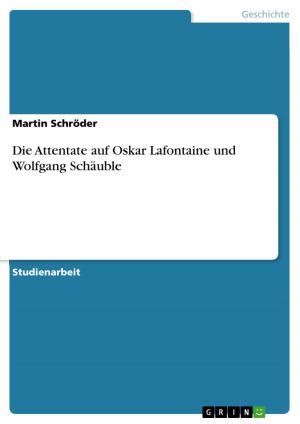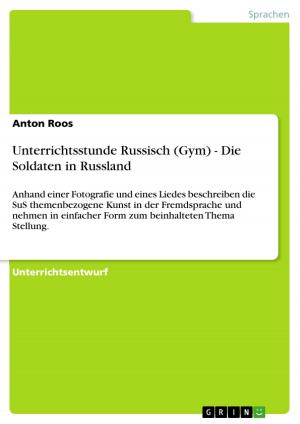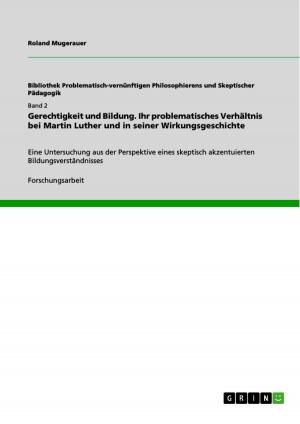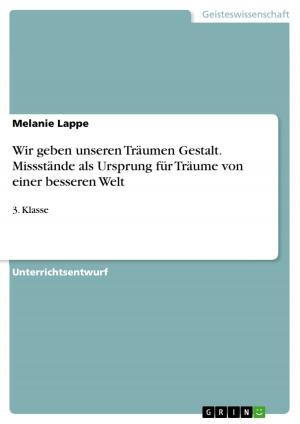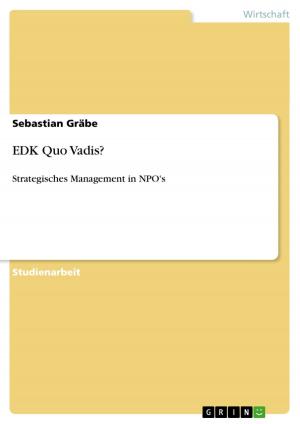When is military intervention morally justified?
Nonfiction, Social & Cultural Studies, Political Science, International, International Security| Author: | Christian Kreß | ISBN: | 9783638392723 |
| Publisher: | GRIN Verlag | Publication: | July 3, 2005 |
| Imprint: | GRIN Verlag | Language: | English |
| Author: | Christian Kreß |
| ISBN: | 9783638392723 |
| Publisher: | GRIN Verlag |
| Publication: | July 3, 2005 |
| Imprint: | GRIN Verlag |
| Language: | English |
Seminar paper from the year 2005 in the subject Politics - International Politics - Topic: Peace and Conflict Studies, Security, grade: 1,0, University of Tubingen, course: Course 'Normative Theories of International Relations', 18 entries in the bibliography, language: English, abstract: Somalia, Serbia-Montenegro, Iraq - These are just three of several countries that were exposed to external military intervention in recent times. Although this kind of intervention is in principle prohibited under international law under Article 2 of the United Nations Charter, states have not been hesitating to use force in order to retaliate against an aggressor, to preventively fight against a threat to national security or to protect human rights. Regardless of its legality, it is interesting to analyze the legitimacy of an intervention from an ethical perspective. Under which conditions is a state morally justified to militarily interfere in another state's internal affairs? What are the moral standards on which a state's conduct of war should be based? Opinions among scholars differ greatly when dealing with this contentious issue. This essay is going to provide some possible answers. Initially, I define the key concepts of the essay theme: 'morality' and 'intervention'. The second chapter deals with two crucial theories of the justice of intervention, namely utilitarianism and just war theory. Subsequently, I present some of Michael Walzer's ideas about just war as elaborated in his famous book 'Just and Unjust Wars'. At the end of my essay, in the fourth chapter, I attempt to answer the question whether the NATO intervention in Kosovo was morally justified by applying just war theory. The second and third chapter are accompanied by my personal evaluation.
Seminar paper from the year 2005 in the subject Politics - International Politics - Topic: Peace and Conflict Studies, Security, grade: 1,0, University of Tubingen, course: Course 'Normative Theories of International Relations', 18 entries in the bibliography, language: English, abstract: Somalia, Serbia-Montenegro, Iraq - These are just three of several countries that were exposed to external military intervention in recent times. Although this kind of intervention is in principle prohibited under international law under Article 2 of the United Nations Charter, states have not been hesitating to use force in order to retaliate against an aggressor, to preventively fight against a threat to national security or to protect human rights. Regardless of its legality, it is interesting to analyze the legitimacy of an intervention from an ethical perspective. Under which conditions is a state morally justified to militarily interfere in another state's internal affairs? What are the moral standards on which a state's conduct of war should be based? Opinions among scholars differ greatly when dealing with this contentious issue. This essay is going to provide some possible answers. Initially, I define the key concepts of the essay theme: 'morality' and 'intervention'. The second chapter deals with two crucial theories of the justice of intervention, namely utilitarianism and just war theory. Subsequently, I present some of Michael Walzer's ideas about just war as elaborated in his famous book 'Just and Unjust Wars'. At the end of my essay, in the fourth chapter, I attempt to answer the question whether the NATO intervention in Kosovo was morally justified by applying just war theory. The second and third chapter are accompanied by my personal evaluation.

